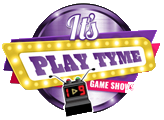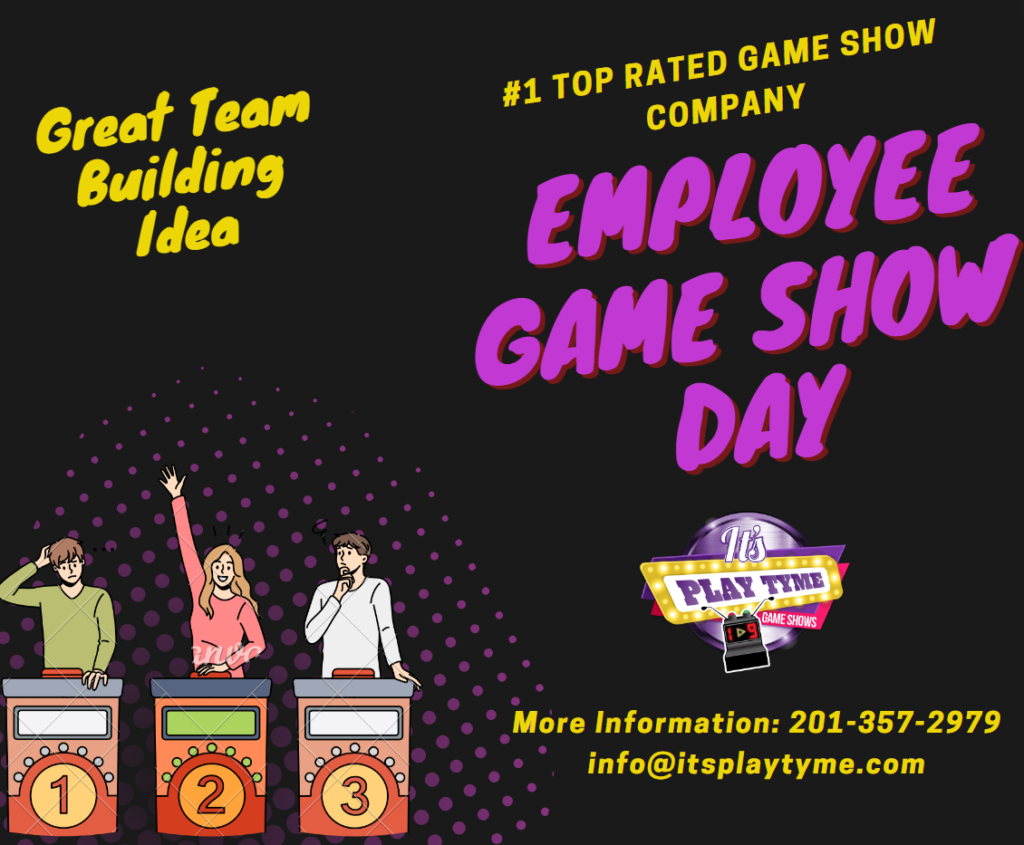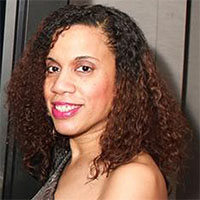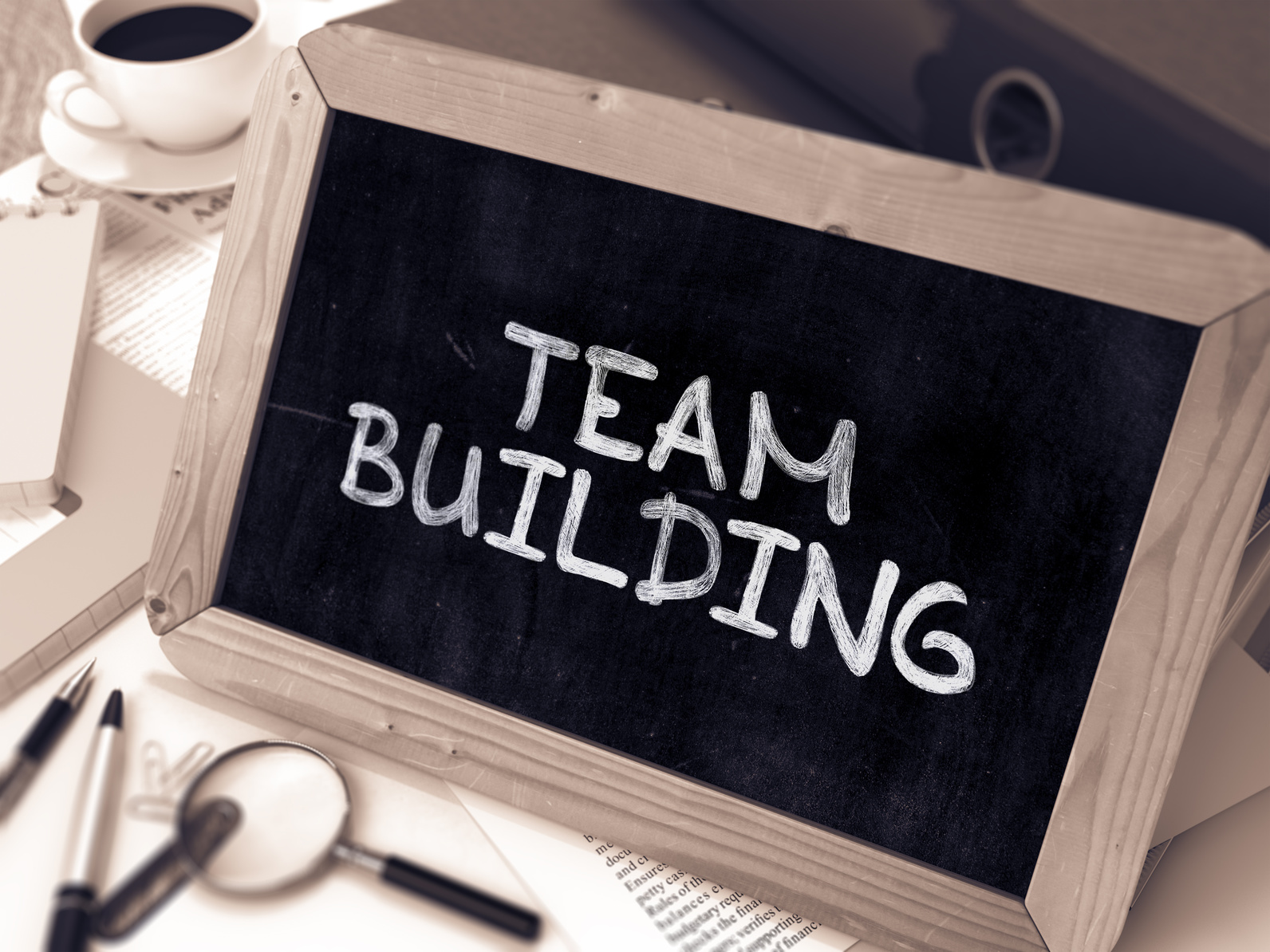Are you looking for a fun and engaging way to boost employee morale and foster teamwork? Well, organizing a talent show at work can be a great way to accomplish these goals! Whether you work for a small startup or a large corporation, a talent show at work can be a fantastic opportunity to showcase the unique talents of your colleagues and create a positive work environment.
However, planning a successful talent show requires careful coordination and attention to detail.
From setting goals and objectives to promoting the event and managing technical requirements, there are many important factors to consider throughout the planning process.
If you’re interested in learning how to organize a talent show at work, this guide is for you! In the following sections.
We’ll provide a step-by-step overview of the planning process, offer valuable tips and strategies, and explore the many benefits of hosting a talent show in your workplace.
Key Takeaways: A Talent Show at Work
- Organizing a talent show at work can boost employee morale and foster teamwork.
- Planning a successful talent show requires careful coordination and attention to detail.
- Setting clear goals and objectives is essential for a successful talent show.
- Promoting the event effectively can ensure maximum participation from colleagues.
- Technical requirements and logistics must be carefully managed to ensure a seamless execution on the day of the event.
15-Minute Meeting Ice Breakers
Book a Live Game Show!
[Best Team Building Games - We Come to Your Location - 100% Satisfaction Guaranteed - Click Below - SERIOUS INQUIRIES ONLY]
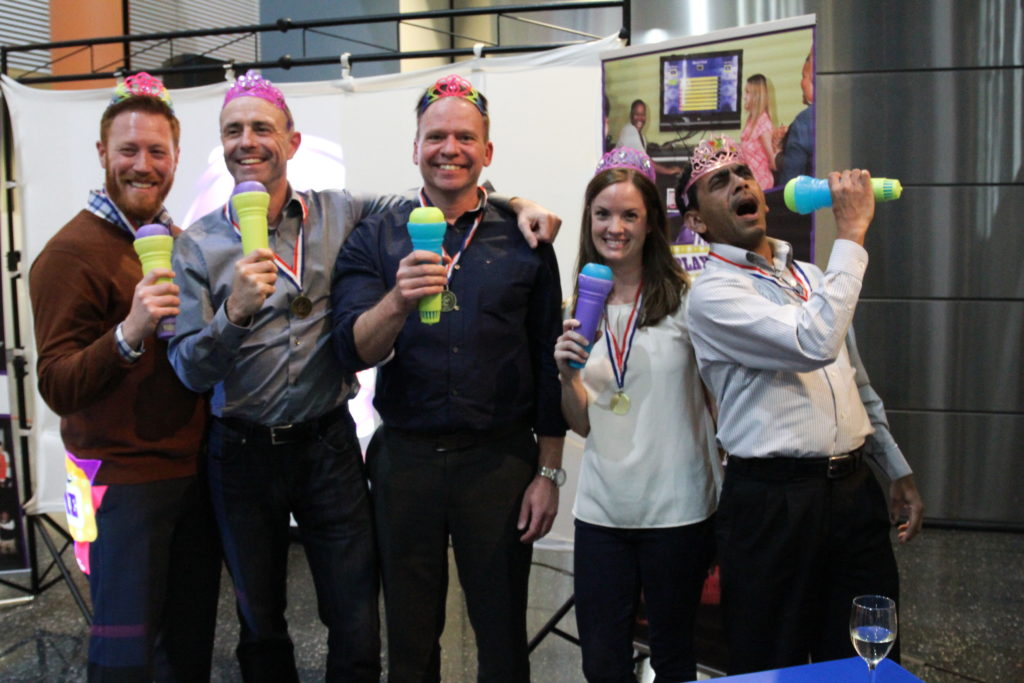
Lip Sync Final Challen
Why Organize a Talent Show at Work?
Organizing a talent show at work is a fantastic way to boost employee morale, foster team building, and create a positive work environment.
A talent show event provides a platform for employees to showcase their skills and talents, creating a sense of camaraderie and appreciation among colleagues.
Moreover, hosting a talent show event shows that your organization values and recognizes the talents and unique abilities of employees.
This can lead to increased job satisfaction, improved engagement, and ultimately higher retention rates.
With the right planning, your organization can create a memorable event that strengthens employee relationships and creates a positive workplace culture.
When planning a talent show at work, there are endless possibilities for the types of events that can be organized. Some ideas include:
| Talent Show Ideas | Description |
|---|---|
| Lip Sync Battle | A fun and lighthearted competition where employees lip sync to popular songs. |
| Dance Competition | A high-energy event where employees can show off their dance moves and compete for a prize. |
| Comedy Night | An evening of stand-up comedy featuring employees as the performers. |
| Music Showcase | A talent show highlighting the musical talents of employees. |
Setting Goals and Objectives for a Talent Show at Work
Organizing a talent show at work can seem overwhelming, but breaking down the process into simple steps can make it much more manageable.
To start off, it’s important to set clear goals and objectives for the event.
This will help guide the planning process and ensure that everyone involved is working towards a common purpose.
Here are some steps to help you organize your talent show:
- Define the purpose: Determine why you want to organize a talent show at work. Is it to boost employee morale, build team spirit, or create a fun-filled event for everyone to enjoy?
Once you have a clear understanding of the purpose, you can move on to defining specific goals. - Establish criteria for participation: Decide who can participate in the talent show. Will it be open to all employees, or will you have specific requirements for performers?
Make sure to clearly communicate these criteria to potential participants. - Create guidelines for performances: Establish guidelines for what types of acts are allowed in the talent show. Consider factors such as time limits, appropriateness for the workplace, and equipment requirements.
This will help ensure that all performers are on the same page and that the event runs smoothly.
By following these steps, you can create a solid foundation for your talent show and ensure that everyone involved knows what is expected of them.
With clear goals and objectives in place, you’ll be well on your way to organizing a successful event!
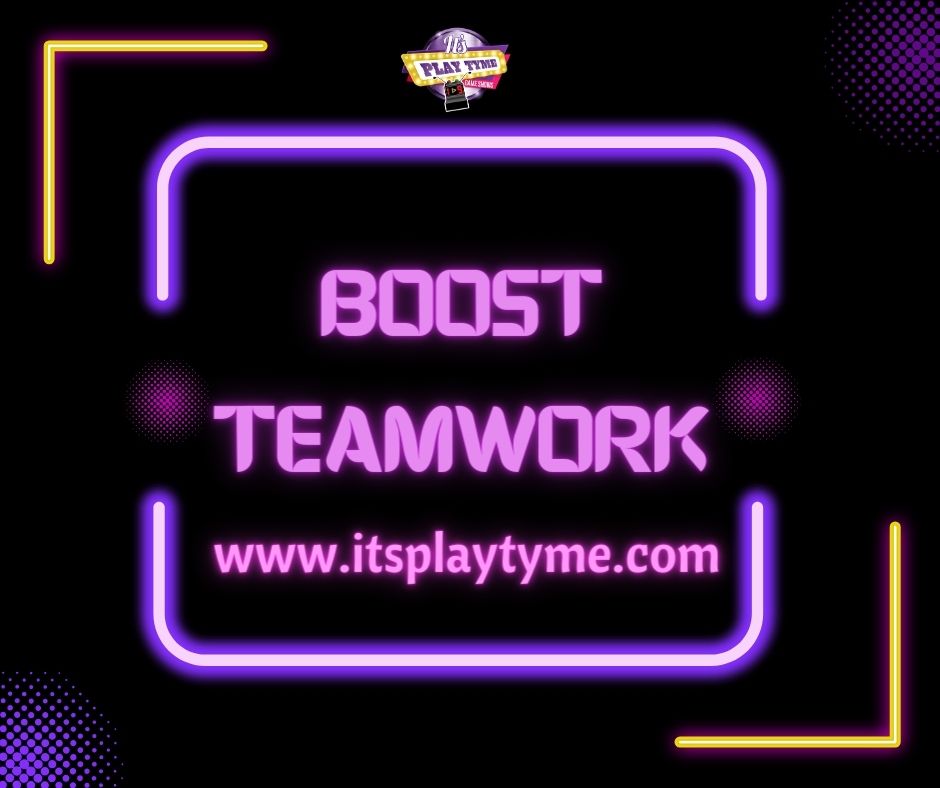
Find the Perfect Game Show for Your Team
Pick the Ideal Match for Your Team’s Unique Goals and Needs – Click Below
Forming a Talent Show Committee
Organizing a talent show at work requires teamwork and effective communication.
To ensure a smooth planning process and execution, it is essential to form a talent show committee.
This section will guide you on how to form a committee, select members, assign roles and responsibilities, and foster effective communication among the team.
Selecting Committee Members
When selecting committee members, it is crucial to consider individuals who possess diverse skillsets and are committed to the success of the event.
Look for colleagues who have experience in event planning, project management, and communication.
Ensure that you have representation from different departments and levels of seniority. This will allow for more significant participation, understanding of various perspectives, and enhance teamwork.
Assigning Roles and Responsibilities
Assigning roles and responsibilities will ensure that everyone is aware of what is expected of them. Here is a table outlining some of the roles and responsibilities that can be assigned to the committee members:
| Role | Responsibilities |
|---|---|
| Chairperson | Oversee the planning and execution of the talent show |
| Marketing and Promotion Coordinator | Create promotional materials and coordinate marketing strategies |
| Logistics Coordinator | Handle venue arrangements, technical requirements, and staging |
| Judge Coordinator | Develop the criteria for judging, select judges and manage their activities during the show. |
| Finance Coordinator | Manage the budget, fundraising and sponsorship activities |
Assigning roles and responsibilities will allow each committee member to focus on their areas of expertise, enhance the quality of the event and bring a sense of accountability to the team.
Effective Communication Among Committee Members
The committee members are the backbone of the talent show. Effective communication is essential to ensure that everyone is on the same page and the event runs smoothly. Here are some tips for fostering effective communication:
- Hold regular meetings to update on progress and discuss any issues or challenges
- Use online collaboration tools to share documents, timelines and status updates
- Ensure that everyone is aware of their responsibilities and deadlines
- Encourage feedback and open communication to promote transparency and trust
By forming a talent show committee, selecting members with diverse skill sets, assigning roles and responsibilities, and fostering effective communication, you can create an event that engages your colleagues, promotes teamwork and boosts morale.

team-building-planning
Book a Live Game Show!
[Best Team Building Games - We Come to Your Location - 100% Satisfaction Guaranteed - Click Below - SERIOUS INQUIRIES ONLY]
Planning the Talent Show Schedule
One of the most crucial elements of organizing a successful talent show at work is creating a comprehensive schedule.
This will ensure that the event runs smoothly, and all performers have adequate time to showcase their talents.
Here are some talent show organization tips to help you plan a work talent show:
1 – Determine the Date and Time
The first step is to decide on a date and time that works for everyone involved. Consider factors such as the availability of the performers and the venue, as well as the preferences of your colleagues.
Choose a time that will not interfere with work schedules and is convenient for all attendees.
2 – Allocate Time Slots
Once you have set the date and time, it’s essential to allocate time slots for each performance. Ensure that each act has enough time to set up and perform without causing delays or overlaps.
Consider including breaks throughout the event to allow attendees to stretch their legs and recharge.
3 – Determine the Duration of the Event
Knowing the duration of the event will help you plan the talent show schedule and ensure that it doesn’t run over time.
A good rule of thumb is to keep the event to around two hours, including breaks. This will keep attendees engaged and prevent the event from dragging on.
4 – Show Rehersal
Creating a run of show will help you keep track of the talent show schedule and ensure that everything runs according to plan.
A rehearsal should include the order of the performances, the names of the performers, and the allocated time slots.
It’s also helpful to include the technical requirements for each act to ensure that all equipment is available and operating correctly.
5 – Be Flexible
It’s essential to be flexible when planning a team building talent show schedule since unexpected issues may arise.
Allow for some buffer time in your schedule to accommodate delays or unexpected changes.
Ensure that you have a backup plan in case of technical difficulties or a performer not showing up.
By following these talent show organization tips, you can create a comprehensive plan for your work talent show that runs smoothly and is enjoyable for everyone involved.
Got Games? – PRESS PLAY! #indooractivities #talentshowfinals
![]()
Book a live game show experience today!
Contact us for further details.
For Immediate assistance by text – 917-670-4689
No deposit required. 5-Star Google Rating.
We plan and facilitate all activities.
Promoting the Talent Show: Effective Strategies and Tips
One of the most critical aspects of organizing a successful talent show at work is promoting it effectively.
By getting the word out and generating interest in the event, you can ensure maximum attendance and engagement from colleagues.
1 – Create Eye-catching Posters and Flyers
One of the most effective ways to promote your talent show is by creating posters and flyers that highlight the event’s details and generate excitement.
Place these in high-traffic areas such as break rooms, hallways, and elevators where they are noticeable to everyone. Your posters and flyers should include:
- The date and time of the event
- The venue and location
- A brief description of the talent show, such as the types of performances to expect or the prize for the winner
- Contact information for the organizing committee
2 – Use Social Media
Social media is an excellent platform for promoting your talent show. Use your company’s social media accounts, or create a new one if necessary, to share updates and information about the event.
Create a dedicated hashtag to make it easier for people to find and join the conversation.
You can also encourage employees to share the details on their personal social media accounts to reach a broader audience.
3 – Send Email Invitations
Send out email invitations to coworkers in your company with all the relevant information about the event.
Make sure to personalize your message and highlight how their participation and attendance are valuable to the success of the talent show.

Auditions and Selection Process
Organizing auditions and selecting performers for your talent show can be an exciting process, but it requires careful planning and coordination.
To ensure that the talent show is a success, you need to follow some talent show organization tips, talent show coordination, and hosting a talent show at work. Here are some guidelines to help you:
- Define the Criteria: Establish clear criteria for participation, such as the type of performances, the maximum duration of acts, and any restrictions on content.
Use these criteria to create an application form that participants need to fill out. - Advertise the Auditions: Promote the auditions using various communication channels, such as email, social media, and flyers around the office.
Make sure to specify the time, location, and requirements for the auditions. - Conduct the Auditions: Set up a suitable space for the auditions, either at the office or at an external location if necessary.
Designate a panel of judges to evaluate the performances, and create a rating system to ensure fairness. - Select the Performers: Based on the judges’ ratings, select the performers who will participate in the talent show.
Notify them promptly, and provide them with all relevant guidelines and requirements for their performances.
By following these steps, you can ensure that the selection process is transparent, fair, and structured, which will help to create a successful and enjoyable talent show.
Rehearsals and Preparation
Once you have finalized the performers for your work talent show, it’s time to focus on rehearsals and preparation. This stage is crucial to ensuring a successful event.
Setting a rehearsal schedule is key to helping performers refine their acts and feel confident on stage. Make sure to find a time that works for everyone and stick to a consistent schedule. You can also offer support to performers by providing feedback and encouragement.
Smooth transitions between acts are important for maintaining the flow of the show. Be sure to plan out the order of performances in advance and consider the logistics of moving performers on and off stage.
If your talent show involves elaborate costumes or props, encourage performers to practice with them during rehearsals. This will help ensure that everything runs smoothly on the day of the event.
Remember to also plan for any unexpected issues that may arise. This could include equipment malfunctions or performers getting nervous backstage. Having a backup plan and offering support can help alleviate stress for both performers and organizers.
Overall, adequate preparation and support can make all the difference in the success of your talent show. Keep these tips in mind as you get ready to showcase the talents of your colleagues.
employee-engagement-game-show-idea
Technical Requirements and Logistics
When planning a work talent show, technical requirements and logistics play a crucial role in ensuring a seamless execution. Here are some talent show organization tips to consider:
| Aspect | Considerations |
|---|---|
| Audiovisual Requirements | Ensure the venue has the necessary equipment for sound and lighting. Test all equipment prior to the event to avoid technical difficulties. |
| Stage Setup | Designate an appropriate area for performances with adequate space and lighting. Ensure the stage is safe and accessible for performers of all types. |
| Logistics | Plan for contingencies such as power outages or last-minute cancellations. Develop contingency plans to ensure a smooth flow of the event. |
Working with the venue staff is essential to ensure a successful technical execution of the talent show. Be sure to communicate your specific needs and coordinate with the staff to ensure your requirements are met.
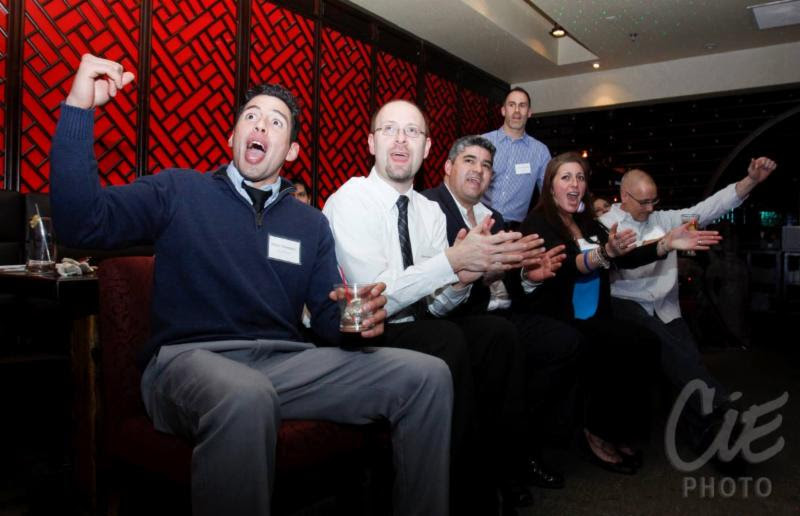
Icebreaker games in Edison New Jersey
Showtime and Event Execution
It’s finally time for the big event! With all the careful planning and preparation that went into organizing your talent show, it’s important to ensure that everything goes smoothly on the day of the event.
Here are some tips to help you execute a successful talent show at work:
- Arrive early: Arrive at the venue early to ensure that everything is set up and ready to go. This will give you time to iron out any last-minute details or technical difficulties that may arise.
- Facilitate smooth transitions: Make sure there is a seamless flow between each performance. Consider using a host or emcee to introduce each act and keep the audience engaged.
- Engage the audience: Encourage the audience to participate by providing them with voting ballots or hosting a lip sync battle. This will help to create a sense of camaraderie and boost employee morale.
- Ensure technical requirements are met: Double-check that all technical requirements, such as audiovisual equipment, lighting, and stage setup, are in place and functioning properly.
- Address any issues that arise: Be prepared to handle any issues that may arise during the event, such as a performer running late or technical difficulties. Have a backup plan in place.
Remember, the talent show is all about showcasing the skills and talents of your colleagues and fostering a positive work environment. With careful planning and execution, your talent show is sure to be a success!
Conclusion
Organizing a talent show at work is a great way to boost morale, foster team building, and create a positive work environment.
By following the steps and tips outlined in this guide, you can successfully plan and execute a memorable event that showcases the unique talents of your colleagues.
Remember the Benefits
Don’t forget the benefits of organizing a talent show at work! It’s an opportunity to create a fun and engaging atmosphere, build relationships amongst employees, and promote a positive company culture.
Follow the Steps
As you embark on the planning process, remember to set clear goals and objectives, form a talented committee, create a comprehensive schedule, and promote the event effectively.
It’s also important to ensure fair audition and selection processes, offer support to performers during rehearsals, and handle technical requirements and logistics smoothly.
Make it Memorable
The event itself should be a celebration of your colleagues’ talents and accomplishments.
Remember to manage the flow of the show, facilitate smooth transitions, and engage the audience throughout the performances.
Whether it’s a lip sync battle or a showcase of original compositions, make the talent show a memorable event that exemplifies your team’s creativity and camaraderie.
So what are you waiting for? Gather your colleagues, form a committee, and start planning your next great talent show!
Frequently Asked Questions – Talent Shows for Team Bonding

frequently asked questions
How can organizing a talent show at work benefit my company?
Organizing a talent show at work can boost employee morale, foster team building, and create a positive work environment. It provides an opportunity for employees to showcase their talents and encourages collaboration and support among colleagues.
What are some ideas for different types of talent show events that can be organized?
Some popular talent show event ideas include singing competitions, dance performances, stand-up comedy shows, lip sync battles, and variety shows featuring a mix of talents.
The choice of event can be tailored to the interests and skills of your employees.
How do I set goals and objectives for the talent show?
To set goals and objectives for the talent show, define the purpose of the event. Determine what you want to achieve, such as boosting employee morale or promoting teamwork.
Establish criteria for participation and create guidelines for performances to ensure consistency and fairness.
How do I form a talent show committee?
To form a talent show committee, select individuals who are enthusiastic about organizing the event and have complementary skills.
Assign roles and responsibilities, such as event coordination, marketing, logistics, and judging. Foster effective communication among committee members to ensure smooth coordination.
How do I plan the talent show schedule?
When planning the talent show schedule, select a date and time that works best for the majority of employees.
Determine the duration of the event and allocate time slots for performances. Consider factors such as breaks, intermissions, and any additional activities or entertainment.
How can I effectively promote the talent show?
To promote the talent show, utilize various marketing channels such as social media, email newsletters, posters, and intranet announcements.
Create engaging promotional materials that highlight the unique talents and excitement of the event. Encourage employees to share the event with their networks.
How should auditions and the selection process be conducted?
When conducting auditions, ensure fairness and objectivity by following predetermined guidelines.
Provide clear instructions on what you are looking for and evaluate performers based on criteria established in the guidelines. Consider involving a diverse panel of judges to provide different perspectives.
What is the importance of rehearsals and preparation?
Rehearsals and adequate preparation are essential for a successful talent show. Schedule rehearsals to allow performers to practice their acts and ensure they feel supported.
Offer constructive feedback and help troubleshoot any issues. Good preparation will lead to polished and confident performances.
What technical requirements and logistics should I consider for the talent show?
When organizing a talent show, consider the audiovisual requirements, stage setup, and logistics.
Check the venue’s technical capabilities and communicate your needs to the venue staff. Plan for equipment setup time, sound checks, and any necessary rehearsals on the event day.
How do I execute the talent show on the day of the event?
To successfully execute the talent show, manage the flow of the show by ensuring smooth transitions between acts.
Engage the audience through interactive elements or introductions. Have a designated point person or emcee who can guide the event and address any unexpected situations that may arise.

game-shows-for-team-building-NYC-METRO
